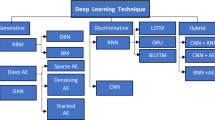Abstract
User review rating of mobile applications is a crucial factor related to downloads and it greatly impacts the customer’s decisions to prefer the applications with the highest (most positive) ratings. Whereas, titles are among the first information displayed to users when they search for any particular application and a compelling title can be a leading cause for an application’s success. Hence, developer companies fashion (optimize) their application titles strategically, in such a way, that they are highly eye-catching and descriptive about application functionalities in an attempt to lure users to download and positively rate their applications. However, traditional literature may lack the scientific approaches which investigate what (specific) kind of textual features in application titles actually have a positive (or negative) effect on the review rating. Therefore, aim of this research work is to perform two separate kinds of scientific analyses to determine the impacts of unconscious (aspects usually not observed by users) and conscious (keyterms which are observed by users) features of Google-play store application titles on the user review rating. At first, for the investigation of unconscious aspects various machine learning algorithms are employed and secondly, for the conscious features another keyterms analysis is carried out. Overall, according to the results, certain unconscious aspects can lead towards the elevated review ratings in both cases of Applications and Games. Albeit, conscious aspects tend to have a positive impact only on the review ratings of Games.







Similar content being viewed by others
Notes
https://www.kaggle.com/gauthamp10/google-playstore-apps.
References
Mahmood A (2020) Identifying the influence of various factor of apps on google play apps ratings. J Data Inf Manag 2(1):15–23. https://doi.org/10.1007/s42488-019-00015-w
Martin W, Sarro F, Jia Y, Zhang Y, Harman M (2016) A survey of app store analysis for software engineering. IEEE Trans Softw Eng 43(9):817–847. https://doi.org/10.1109/TSE.2016.2630689
Sadiq S, Umer M, Ullah S, Mirjalili S, Rupapara V, Nappi M (2021) Discrepancy detection between actual user reviews and numeric ratings of google app store using deep learning. Expert Syst Appl 181:115111. https://doi.org/10.1016/j.eswa.2021.115111
Van Rensburg WJ, Thomson K-L, Futcher L (2018) Factors influencing smartphone application downloads. In: IFIP world conference on information security education, pp 81–92. Springer. https://doi.org/10.1007/978-3-319-99734-6_7
Pal Kapoor A, Vij M (2020) How to boost your app store rating? An empirical assessment of ratings for mobile banking apps. J Theor Appl Electron Commer Res 15(1):99–115. https://doi.org/10.4067/S0718-18762020000100108
Karagkiozidou M, Ziakis C, Vlachopoulou M, Kyrkoudis T (2019) App store optimization factors for effective mobile app ranking. In: Strategic innovative marketing and tourism, pp 479–486. https://doi.org/10.1007/978-3-030-12453-3_54
Tian Y, Nagappan M, Lo D, Hassan AE (2015) What are the characteristics of high-rated apps? A case study on free android applications. In: 2015 IEEE international conference on software maintenance and evolution (ICSME), pp 301–310. IEEE. https://doi.org/10.1109/ICSM.2015.7332476
Finkelstein A, Harman M, Jia Y, Martin W, Sarro F, Zhang Y (2017) Investigating the relationship between price, rating, and popularity in the blackberry world app store. Inf Softw Technol 87:119–139. https://doi.org/10.1016/j.infsof.2017.03.002
Ali M, Joorabchi ME, Mesbah A (2017) Same app, different app stores: a comparative study. In: 2017 IEEE/ACM 4th international conference on mobile software engineering and systems (MOBILESoft), pp 79–90 . https://doi.org/10.1109/MOBILESoft.2017.3
AmanUllah H, Fatima M, Muneer U, Ilyas S, Rehman RA, Afzal I (2019) Causal impact analysis on android market. Int J Adv Comput Sci Appl 10(6). https://doi.org/10.14569/IJACSA.2019.0100644
Picoto WN, Duarte R, Pinto I (2019) Uncovering top-ranking factors for mobile apps through a multimethod approach. J Bus Res 101:668–674. https://doi.org/10.1016/j.jbusres.2019.01.038
Zhu H, Xiong H, Ge Y, Chen E (2015) Discovery of ranking fraud for mobile apps. IEEE Trans Knowl Data Eng 27(1):74–87. https://doi.org/10.1109/TKDE.2014.2320733
Liu CZ, Au YA, Choi HS (2014) Effects of freemium strategy in the mobile app market: an empirical study of google play. J Manag Inf Syst 31(3):326–354. https://doi.org/10.1080/07421222.2014.995564
Ruiz IJM, Nagappan M, Adams B, Berger T, Dienst S, Hassan AE (2015) Examining the rating system used in mobile-app stores. IEEE Softw 33(6):86–92. https://doi.org/10.1109/MS.2015.56
Cao H, Lin M (2017) Mining smartphone data for app usage prediction and recommendations: a survey. Pervasive Mob Comput 37:1–22. https://doi.org/10.1016/j.pmcj.2017.01.007
Jisha RC, Amrita JM, Vijay AR, Indhu GS (2020) Mobile app recommendation system using machine learning classification. In: 2020 Fourth international conference on computing methodologies and communication (ICCMC), pp 940–943. https://doi.org/10.1109/ICCMC48092.2020.ICCMC-000174
Liang T, Chen L, Ying X, Philip SY, Wu J, Zheng Z (2017) Mobile application rating prediction via feature-oriented matrix factorization. In: 2017 IEEE international conference on web services (ICWS), pp 261–268. IEEE. https://doi.org/10.1109/ICWS.2017.41
Lee G, Raghu TS (2014) Determinants of mobile apps’ success: evidence from the app store market. J Manag Inf Syst 31(2):133–170. https://doi.org/10.2753/MIS0742-1222310206
Khalid H, Nagappan M, Hassan AE (2016) Examining the relationship between findbugs warnings and app ratings. IEEE Softw 33(4):34–39. https://doi.org/10.1109/MS.2015.29
Monett D, Stolte H (2016) Predicting star ratings based on annotated reviews of mobile apps. In: 2016 Federated conference on computer science and information systems (FedCSIS), pp 421–428. IEEE. https://doi.org/10.15439/2016F141
Umer M, Ashraf I, Mehmood A, Ullah S, Choi GS (2021) Predicting numeric ratings for google apps using text features and ensemble learning. ETRI J 43(1):95–108. https://doi.org/10.4218/etrij.2019-0443
McIlroy S, Shang W, Ali N, Hassan AE (2015) Is it worth responding to reviews? Studying the top free apps in google play. IEEE Softw 34(3):64–71. https://doi.org/10.1109/MS.2015.149
Author information
Authors and Affiliations
Corresponding author
Additional information
Publisher's Note
Springer Nature remains neutral with regard to jurisdictional claims in published maps and institutional affiliations.
Rights and permissions
Springer Nature or its licensor (e.g. a society or other partner) holds exclusive rights to this article under a publishing agreement with the author(s) or other rightsholder(s); author self-archiving of the accepted manuscript version of this article is solely governed by the terms of such publishing agreement and applicable law.
About this article
Cite this article
Bilal, A., Mirza, H.T. & Hussain, I. Identifying significant textual features in titles of Google play store applications and their influence on user review rating. Knowl Inf Syst 65, 1159–1178 (2023). https://doi.org/10.1007/s10115-022-01799-x
Received:
Revised:
Accepted:
Published:
Issue Date:
DOI: https://doi.org/10.1007/s10115-022-01799-x




